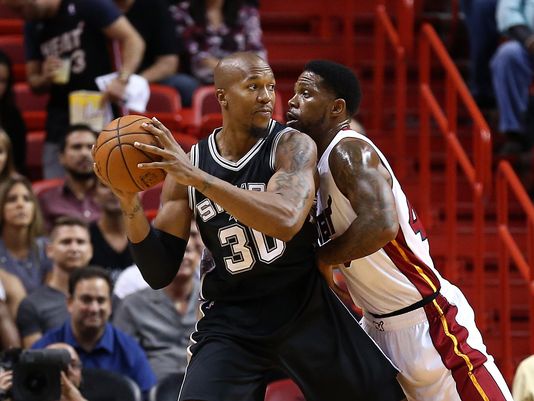When David West agreed to join the San Antonio Spurs, he left more than $10 million on the table with the Indiana Pacers. That’s a lot of money, but it’s coin he doesn’t regret forfeiting.
In fact, as he made clear to USA Today’s Sam Amick, much of his 12-year NBA career has been about preparing him for this exact situation, for this chance to join a bona fide contender and chase championships at the expense of dollar signs. Their entire chat is worth a read, but here’s the gist of how West set himself up to pass on $10-plus million without regret:
He’s not in that boat, of course, because he was smart with his money; because he avoided the traps that basketball players often fall in to. And, because his consistent play, team-first personality and revered leadership skills had teams like the Spurs and the defending champion Golden State Warriors itching to add him during this late stage of his playing days.
“My whole career, I’ve been very strategic about what I’ve done with my money and how we’ve invested,” West said. “The future is very bright, so when it came down to this basketball decision, I was saying, ‘Well, it’s not about money at this point, it’s about finding … a good basketball environment where I might learn and ultimately compete at the very top. These guys (the Spurs) are there every year. The organization, there’s like a mythological lure about them and the way people talk about them.
“I’ve been a Spurs fan my whole life, and having an opportunity and wanting to learn from (Tim) Duncan and Manu (Ginobili) and Tony (Parker) and obviously Coach (Gregg) Popovich and all his knowledge, I just felt like it was a good environment, and it was the best environment.”
Good on West for being smart with his money, for putting himself in a situation where he could prioritize rings over bills.
Today’s tabloids are teeming with the stories of professional athletes going bankrupt or falling on hard times after their careers. That’s why so many current athletes are bent on chasing the almighty dollar. They know the gravy train will end at some point, and it doesn’t make sense to willingly curb one’s earning potential within an already limited window.
But the NBA has measures in place to help players learn about the importance of sound investing, among other things. It’s part of the league’s rookie symposium, held every year, usually at the New York Knicks’ training facility. And while the time novices spend there isn’t the end-all of lifelong financial planning, it’s a start.
This is not to say players must be smart with their money so that they can take pay cuts, as West did. That’s not it at all. Accepting less isn’t mandatory practice. Just ask Kobe Bryant.
But later in your career, when talk of legacy takes precedent and you realize the end goal of any season, irrespective of what you’ve already done, should be about winning a title, it’s always nice to have the option.



















